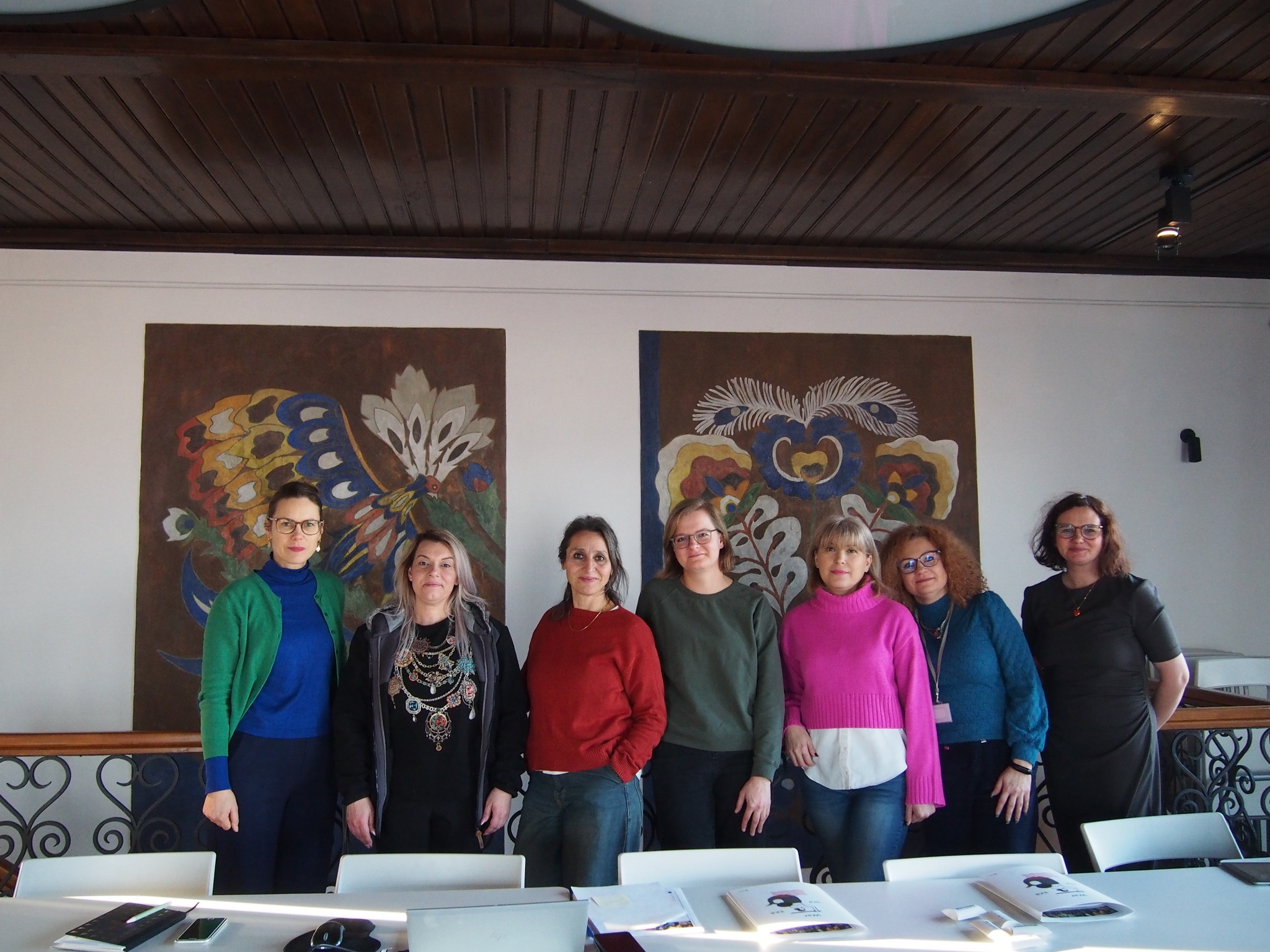
The kick-off meeting in the Museum of Warsaw
The project began with a joint session of partner organizations in the Museum of Warsaw, Poland on the 10th and 11th of January 2024. Organisational and project issues were discussed and activities that would take place in the next stages were planned.
The Pillot kick-off meeting, hosted by the leading partner Muzeum Warszawy in January 2024, was a little reunion for us, as the team had already met in September 2022 during a networking event in Warsaw.
This allowed us to get started straight away on our first project pursuit - testing and selecting the best approaches and techniques for teaching foreign languages through tangible as well as intangible cultural heritage.
Project partners from Poland - Museum of Warsaw, Luxembourg - Inlingua, The Czech Republic - Centrum demokratického vzdělávání and Italy - Stazione Utopia were present to launch the activities in person.
An important part of the agenda was dissemination and project communication. A communication plan with clear procedures to ensure wide and regular updating of educators and learners ...
The group was initially welcomed by Anna Duńczyk-Szulc, The Museum of Warsaw´s deputy director, who stressed the importance of involving cultural institutions in local communities, such as through creating space for inclusion activities of migrants and refugees.
Pillot members then briefly shared their experiences with supporting language integration of migrants and refugees and the good practices of guiding learners to acquire both language skills and cultural present and past knowledge of local societies.
Katarzyna Žák-Caplot, the project coordinator from The Museum of Warsaw, presented the suggested timescale in order to first explore the possible relevant activities and approaches to integrate language learning with learning about cultural heritage and its contexts.
Furthermore, the following activities organised in work packages were briefly discussed as well. This involved practical testing with migrant and refugee learners, the process of developing our final project outputs - manuals for both educators and learners, a user friendly learning website and final events to share the experience from the activities with the wider public.
The Polish and Luxembourg partners introduced a draft of a form to collect ideas for integrated learning activities suggestions from all partners. This was discussed and all partners set off to research, collect and choose activities in 5 areas of cultural heritage:
- art and history
- folk culture, customs and legends
- folk culinary culture
- urban space and cultural heritage
- natural cultural heritage
Dealing with project management issues was on the agenda: setting up a timetable, gantt chart, milestones for the activities, and other organisational and financial issues related to the project implementation. Partners also discussed existing project management, evaluation and quality assurance tools.
An important part of the agenda was dissemination and project communication. A communication plan with clear procedures to ensure wide and regular updating of educators and learners about the project development and results to ensure impact and usefulness in our countries and beyond within the European community of educators was introduced.
The initial transnational meeting received great feedback from all participants, who were eager to get to know each other better, share experience with their local practices and initiatives, and enthusiastically embark on the collection of integrated learning activities.
If you would like some further information, don't hesitate in contacting us via email or Facebook.